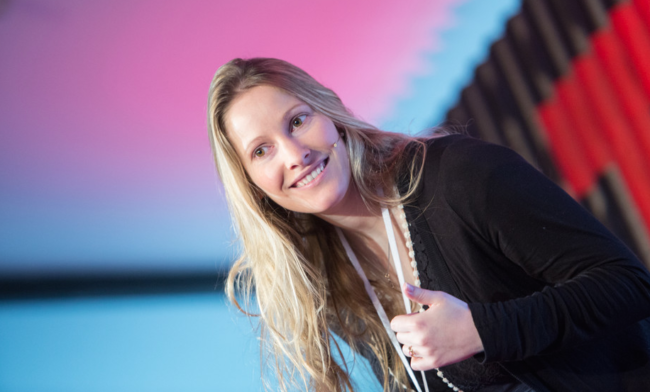Written by: on January 18, 2018
It’s taken me a while to decide how to start this blog. Then Oprah happened and I couldn’t procrastinate anymore. I watched her speech at the Golden Globes the morning after it aired. I cried. I was late for work, but it was worth it.
How often do we see a woman on prime time TV, speaking directly to girls and women, passionately telling them that speaking the truth is their most powerful tool? That it’s not just important for them to use their voice, it’s essential. That their time is now. It’s not surprising that it felt so powerful.
I once explained to a guy that most women have trained themselves so that when we walk down the street alone and a man is walking the other way, we won’t make eye contact. We stare at the pavement – just in case. I explained that this is something many women will probably do every single day, maybe multiple times, until it becomes something they don’t even think about anymore. He looked shocked.
And this starts from a young age. The Girl Guiding’s Girls’ Attitudes Survey 2016 found that a third of girls aged 11-21 feel unsafe when they are out alone most of the time and that ‘many girls are adapting their own behaviour to avoid experiencing sexual harassment.’
I think we can start to break this cycle by speaking out, tackling harassment and empowering younger women – because no-one should be fearful when simply walking down the street.
The world had to sit up and take notice when the hashtag #metoo went viral and enabled a lot of girls and women to speak up about sexual harassment. By coincidence, #metoo exploded on social media just after I went to a talk by Laura Bates (from the Everyday Sexism project) about sexism on university campuses, in October last year.
It was shocking to hear that young women between the ages of 16-24 are one of the largest groups of victims of domestic violence. Also, that in Laura’s experience, many young women feel that it’s ‘normal’ to be groped on the bus on the way to school. It showed me that we shouldn’t be thinking of violence and harassment against women as an adults-only issue.
It seems that harassment is not only becoming normalised for young women, but they also don’t feel empowered to report it. Laura quoted an NUS student survey that found that only 10% of respondents would feel able to report an incident to the police. She told us how she believes that ‘lad banter’ plays a key part in deterring women from report incidents, as this perpetuates the idea that they will not be taken seriously.
Laura’s take-away point was that it’s the youngest girls who need to know that harassment is not a rite of passage, it’s not something to accept as part of a night out, it’s not ‘just banter’ – and that they can and should report the things that happen to them.

She felt that bystander engagement – coming together and speaking out when we see and hear incidents happening – is key to combating the normalisation of harassment. Which is why campaigns like #metoo can be really effective, because it brought thousands of women’s experiences to a global audience.
I think it could be as simple as just telling someone – ‘that’s not ok’ – either in the moment or when we hear them talking about an experience that they shouldn’t have to tolerate. Because if we don’t, the idea that these things are ok will continue.
I get really annoyed when I hear people talk about this being a time of post-feminism. I think this idea had a revival in the 90s with so-called ‘ladette culture’. If you can chug a beer like a dude, then that means we’re living in a post-feminist society, right? Aren’t we living in a Western culture, full of freedom and equality and stuff?
As one of my key life mentors, Phoebe Buffay, wryly noted after a derisory comment from Ross:
I know, I know. We can drive, we can vote, we can work – what more do these broads want?!
Yet women are STILL paid less than their male counter-parts, despite there being legislation in place to combat this.
Be assured. Post-feminism does not have a place here.
So I would say, listen to Oprah and Laura. Don’t be afraid to speak up and call out any inappropriate behaviour you may see others experience or experience yourself. The more we talk about this, the more empowered we become.
Written by Lisa Jones
Back to news and viewsApril 22, 2024 - Lauren